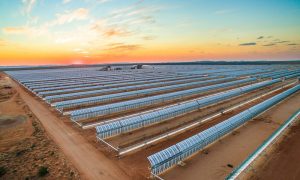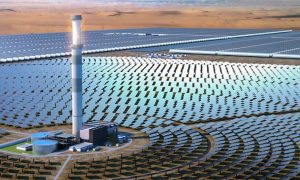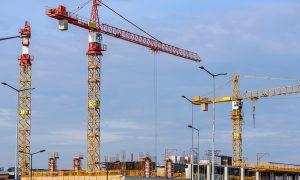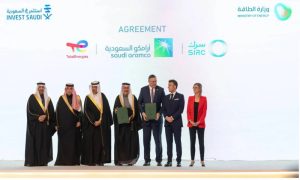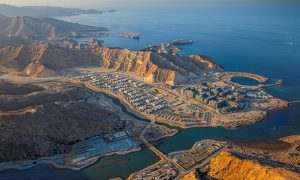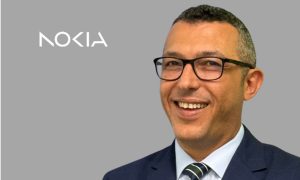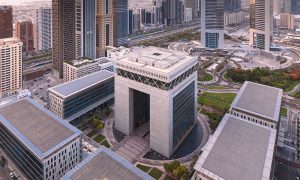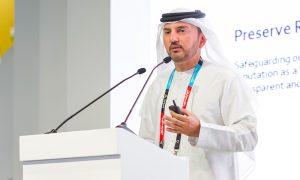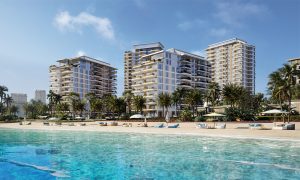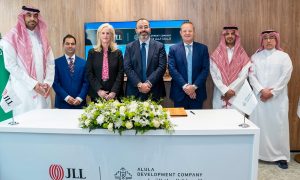Interview: ABB UAE on why the wait is over for solar power
ABB UAE has ambitious plans to tap into the solar power solutions industry

ME Construction News speaks to Dr Mostafa Al Guezeri, managing director of ABB UAE and its Oversight Countries, about the company’s ambitious plans to tap into the solar power solutions industry
Give us an overview of the acceptance of solar power solutions across the GCC markets from ABB’s perspective.
The region has shown its commitment towards renewable energy with various government bodies encouraging the use of grid connected renewable resource.
Shams Dubai initiatives and energy visions from the other GCC countries are acting as catalysts in encouraging residents and utilities to switch to solar energy. ABB has been leading by example by installing a solar roof in its own premises in AlQuoz, Dubai, which is one of the largest privately owned solar rooftop installation in the region.
Considering we have almost 365-days of sunlight across the countries of the GCC, why do you think it took so long for solar power to make a mark/launch as a viable source of energy?
Earlier solar installations were expensive calling for huge investments and had a longer Return on Investment period; however, now technology and mass production has made installation of a solar rooftop within the reach of a common man.
This transformation is not only for the region, but also across the globe. We see a definite cultural shift favouring renewables in the GCC in the last decade.
Effective solar installations also need robust grid infrastructure and investments in renewables by the government bodies, which have strengthened over last years.
While we have sunlight all through the year, we also have a lot of dust/sand that can coat mirrors and reduce their efficiency. What’s your take on this? Is there a way to get around this challenge beyond looking to constant cleaning of the panels?
Prevalence of dust in the Middle East cannot be avoided. However, today there is available technology like the ABB Aurora vision software which tells you about timely maintenance and schedule for cleaning, when output is below the desired level.
There are also other companies, who provide robot-based solutions for cleaning.
Current solar panels are less than 20% efficient – when do you think the technology/panels will evolve so they are more efficient? Is ABB working with solar panel manufacturers to drive this forward in any capacity?
There are new technological updates by the solar panel manufactures with bifacial solar PV modules that will increase the efficiency. ABB is working closely with some of the solar panel manufactures to help consumers integrate solar power more efficiently.
What is the biggest barrier to the acceptance of solar power across the GCC countries? What incentives can authorities use to push acceptance forward?
A shift from the use of fossil fuels as the main source of energy to gradually integrate solar power is ongoing within the region. Increasing price of fossil fuels and increased government commitment towards a sustainable environment are incentive enough for both industries and residents to opt for renewable power.
How is ABB adding value to the solar power ecosystem through its various components such as inverters.?
ABB is a global leader in renewable power integrations, we have been integrating solar power both in utility and infrastructure scale. Our micro-grid solutions help remote locations to be energy self-reliant by integrating solar power to the grid. Our installations across the globe from within the region and across the world have helped realise a vision for sustainability.
What opportunities do you see for ABB in the solar power ecosystem?
The use of Microgrids are increasing throughout the world and it acts as a great source of energy self-sufficiency for remote places where electricity cannot be provided by the grid. We also foresee increased use of solar in transportation, for example, cars which can be charged with EV chargers, which are powered by solar energy.
Is ABB investing in R&D with regards to components that comprise the solar ecosystem?
With seven research centers worldwide, more than 8,000 technologists, and an annual investment of $1.5 billion, our R&D efforts ensure that our products and services are among the best in the world. Our R&D engineers and scientists develop breakthrough technologies that change the way the world works and industries do business. Solar is obviously a part of this.
Even now we have announced a new product – ABB’s new REACT 2 inverter and energy storage solution includes a high-voltage Li-ion battery with a long life and a storage capacity of up to 12 kWh. The modular solution can grow with the needs of any household from 4 kWh to 12 kWh and significantly reduce electricity charges thanks to an achievable energy self-reliance of up to 90%.
The inclusion of a high-voltage battery (200 V) delivers more reliability and up to 10 percent more system efficiency compared to lower voltage alternatives (48 V).
Based on the combination of REACT 2 and ABB-free@home, home owners can make the best use of the electricity generated by their photovoltaic system, avoiding consumption peaks by spreading the electricity load and keeping usage within the capacity of the energy harnessed.
REACT 2 transfers the information on solar energy, home consumption and battery status over a wireless network to the ABB-free@home system access point, which can then control other ABB-free@home devices including heating, lighting, and music. It can even be used to power electric vehicle charging solutions such as the new ABB AC wallbox, and activate new smart functionalities based on energy information.
Can you share some stats/details about the power generated/savings ABB has realised through the installation of a solar power system at its premises in Dubai?
Over 216 metric tons of carbon dioxide has been saved till date, which is the equivalent of removing 46 cars from the roads of Dubai.
ABB has been working very closely with DEWA on various projects. ABB has successfully installed a 400/132 kilovolt (kV) gas-insulated switchgear (GIS) substation at the MBR solar park and ABB’s solar rooftop facility in Al Quoz was one of the pilot projects under the Shams Dubai rooftop solar initiative.
Please let us know more about the Hatta Villa solar power project. What was ABB’s involvement on the project?
ABB supplied 600 inverters to Hatta village project including the remote monitoring software ABB Aurora Vision. The project will prove that the technology to integrate solar power to your residence is available today and is economically viable.
Effective solar installations also need robust grid infrastructure and investments in renewables by the government bodies, which have strengthened over last years.
Discuss how ABB is working to solve the challenges around integrating renewable energy with main power grids.
The growth of renewable energy means that grids need to adapt to changing energy sources, such as wind and solar. Some grid may be have limited capacity to cope with larger amounts of energy or unpredictable weather patterns. ABB integrates grids with new forms of energy, providing a full service from consulting, generation and connection to transmission, monitoring and control, as well as maintenance and optimisation.
ABB is very much at home in the area of grid integration: It can draw on well over 100 years of experience in developing and improving transmission and distribution grids.
ABB’s FACTS (flexible alternating current transmission systems) and HVDC (highvoltage direct current) technologies, are helping reliable power transmission across the globe.
How can homes/offices utilise technology such as Big Data to improve utility performance and reduce wastage/consumption?
With help of internet connectivity of components, we can really bring various components into a harmony. With the new ABB Ability – a unified cloud platform, our solar inverters can be integrated into a building management system in perfect synchronisation to maximise output and reduce wastage.



